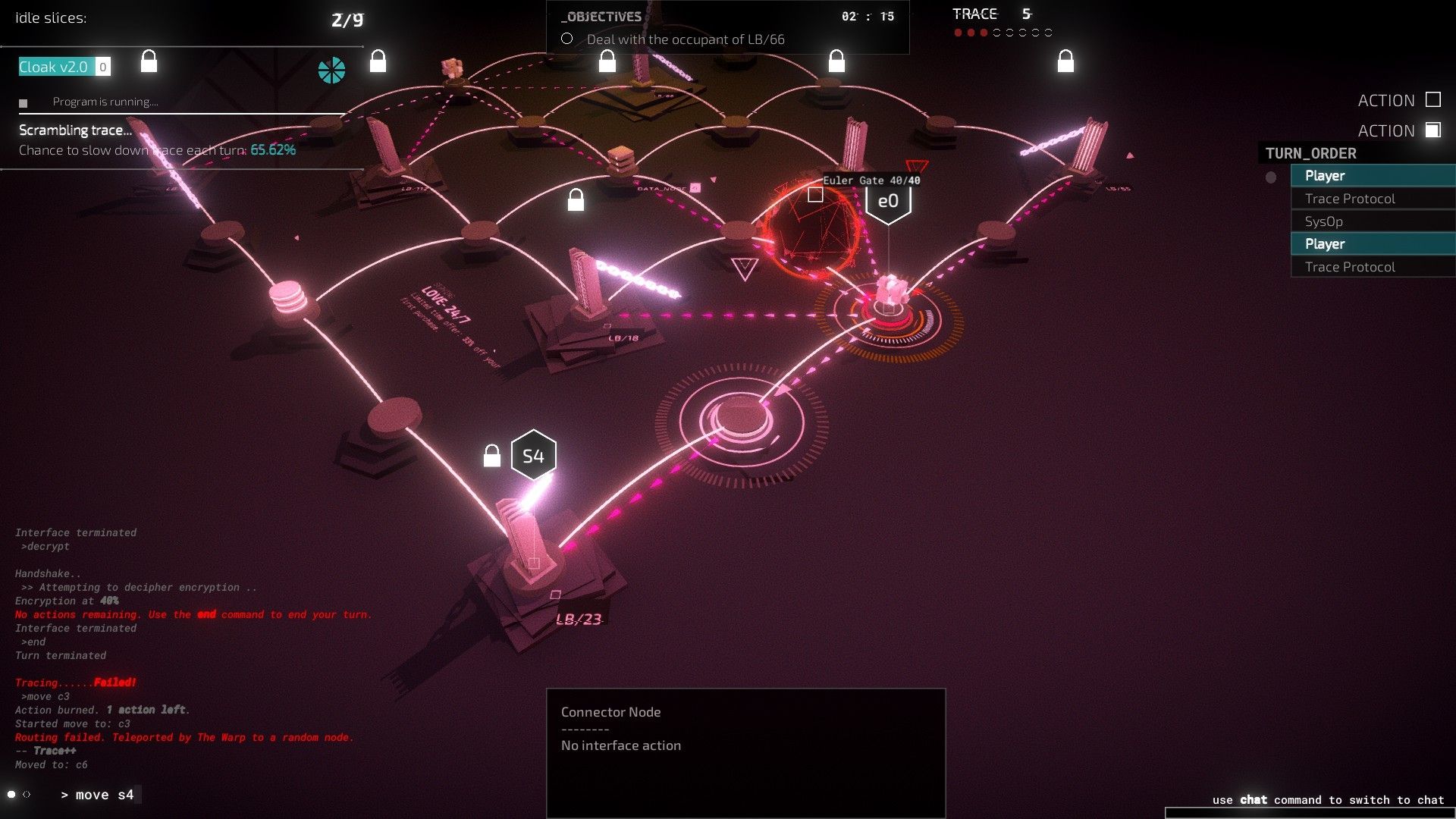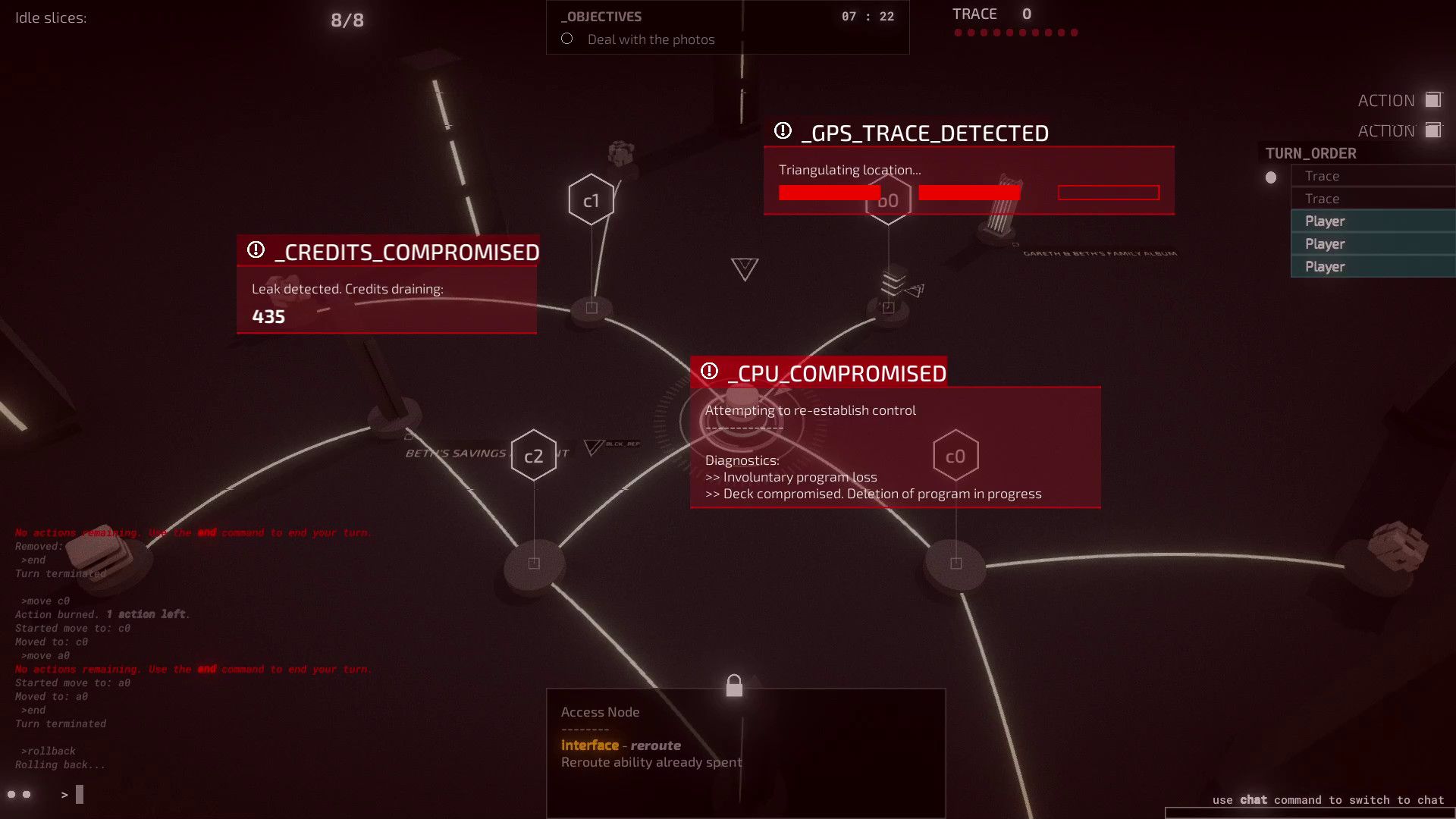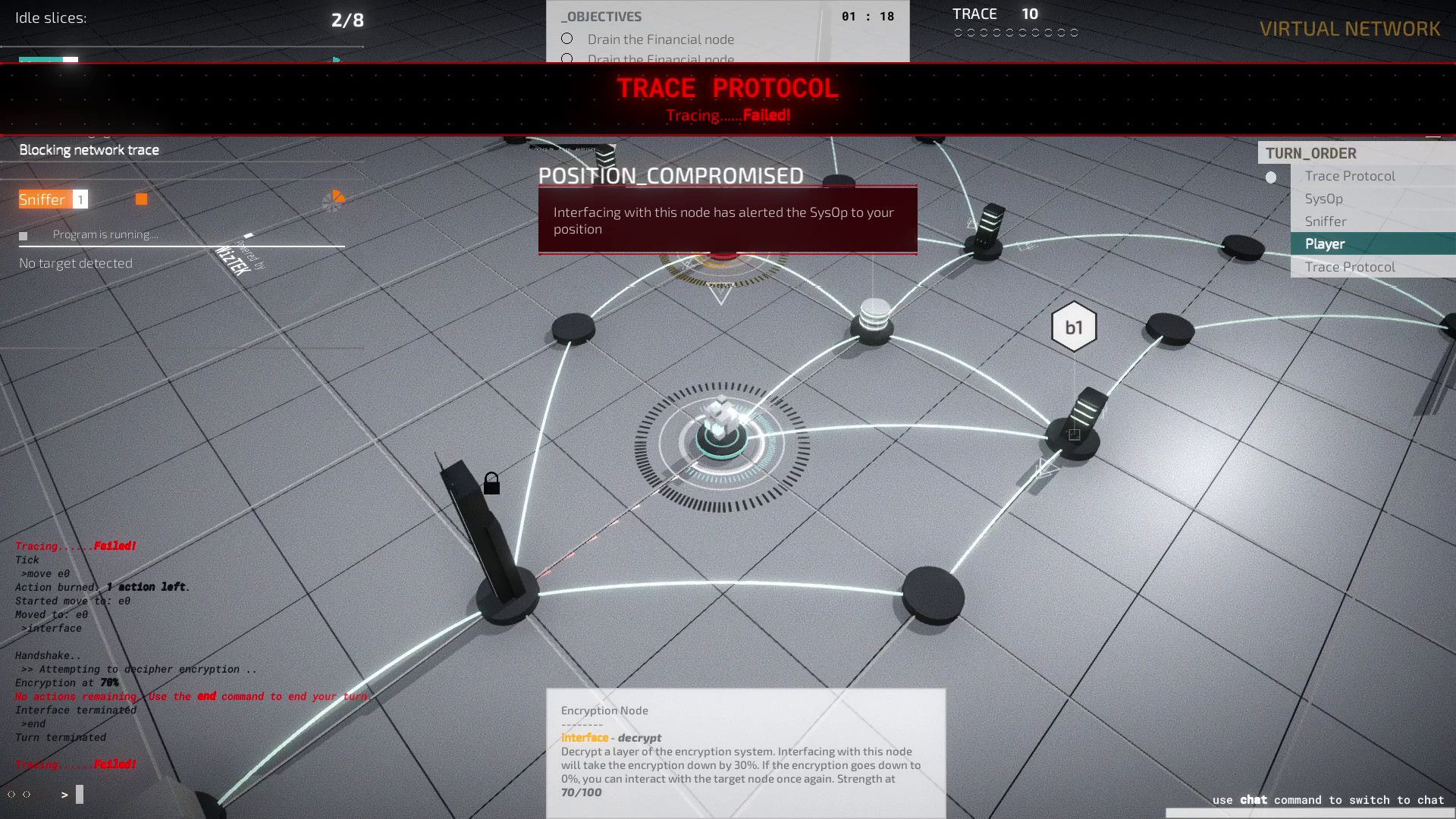Hacking, at least according to pop culture logic, appears incredibly arcane, as if a manuveure that can only be carried out only by the geekiest crew member partaking in an elaborate heist, or the largely ignored IT dude, pantomiming a hack with their fingers at the back of the office in the police headquarters. More than just a cyberpunk pastime for the hooded tech whiz, hacking in real life is probably a lot more measured and not usually as fast-paced as attempting to shut down a flurry of huge, red, aggressive-looking takedown notices in real time, all as the pulsating electronic music of The Prodigy gets blasted in the background.
The more deliberate—although perhaps less glamorous and dramatic—aspect of hacking is what I like about Midnight Protocol, a tech noir game that puts you in the shoes of a hacktivist named Data. The game begins simply enough, with you logging into your computer and introduced to your home screen, which you can check your emails, surf the intranet, purchase tools, programs, and malware kits on the dark web, and select from a litany of networks to hack into. You then discover a conspiracy involving a rival hacker named Kraken, all while trying to etch a living either as a black hat (non-ethical) or white hat (ethical) hacker.
Progressing through this storyline, however, involves quite a bit of hacking. Your old hacking crew will have your back by offering several contacts and jobs for you to earn credits with. These jobs usually revolve around breaking into networks, made up of several interconnected nodes that you’ll need to hop on to make your way towards your target. Your goals for these hacks vary—it can be stealing credits from a financial node, acquiring files from a database for a client, or simply breaking into the network to get rid of a specific virus or data—but these essentially function as turn-based combat.
You’re afforded two tries, in every round, to traverse through these nodes and make your way towards your target node, but there are several things you’ll need to look out for. Most networks will not be freely open to hacks, of course, so their security system will attempt to detect any unauthorised intruders (namely, you) every round, and eventually boot them out. One way is to employ some tools to make such detection tougher, allowing you to linger in the network longer.
At the same time, more heavily fortified networks will run their own anti-intrusion programs, so some strategy is necessary: would you devote your turns to installing tools that can remove these programs? Would you rather make a run for it, explore other options towards your goal, or adopt a more “wait-and-see” approach? There’s plenty of puzzle-solving and strategising involved, but resolving these challenges can feel very much like an adrenaline rush, especially in your attempts to unearth as many secrets and drain as many credits as humanly possible within the short time frame you’re usually given.
Yet, what’s still awesome about these hacking challenges is that these are all being carried out via your keyboard, which means you’ll be physically keying in commands to execute them. These commands aren’t particularly difficult to memorise (and there’s actually a help menu you can access any time), but what makes these moves feel so invigorating is that you’ll still feel every bit like a pop culture cyberpunk hacker, all by tap-tap-tapping away at your keyboard, executing malware and defensive moves. Midnight Protocol’s interface don’t look particularly eye-catching at first glance, and you definitely won’t be sending a cascade of 0s and 1s streaming down the screen, but that’s part of the game’s minimalist appeal; you won’t feel like you’re just playing at hacking, but that you’re actually capable of doing the deed itself.
Cyberpunk games are dime a dozen these days, but there aren’t many titles that exemplify the crux of the genre through the singular act of hacking, be it used to amplify the very human concerns of surviving a tech dystopia, or employed as a metaphor to highlight the societal transgressions that are taking place in our real world. In many of these cyberpunk titles, hacking is reduced to a mere mini game, arbitrarily included to add more of a tech noir slant to these worlds. But in Midnight Protocol, hacking becomes an active display of subversion, the key to accentuating the atmosphere of moral decay amidst the glimmer of technological progress. It also makes hacking seem effortlessly cool.



